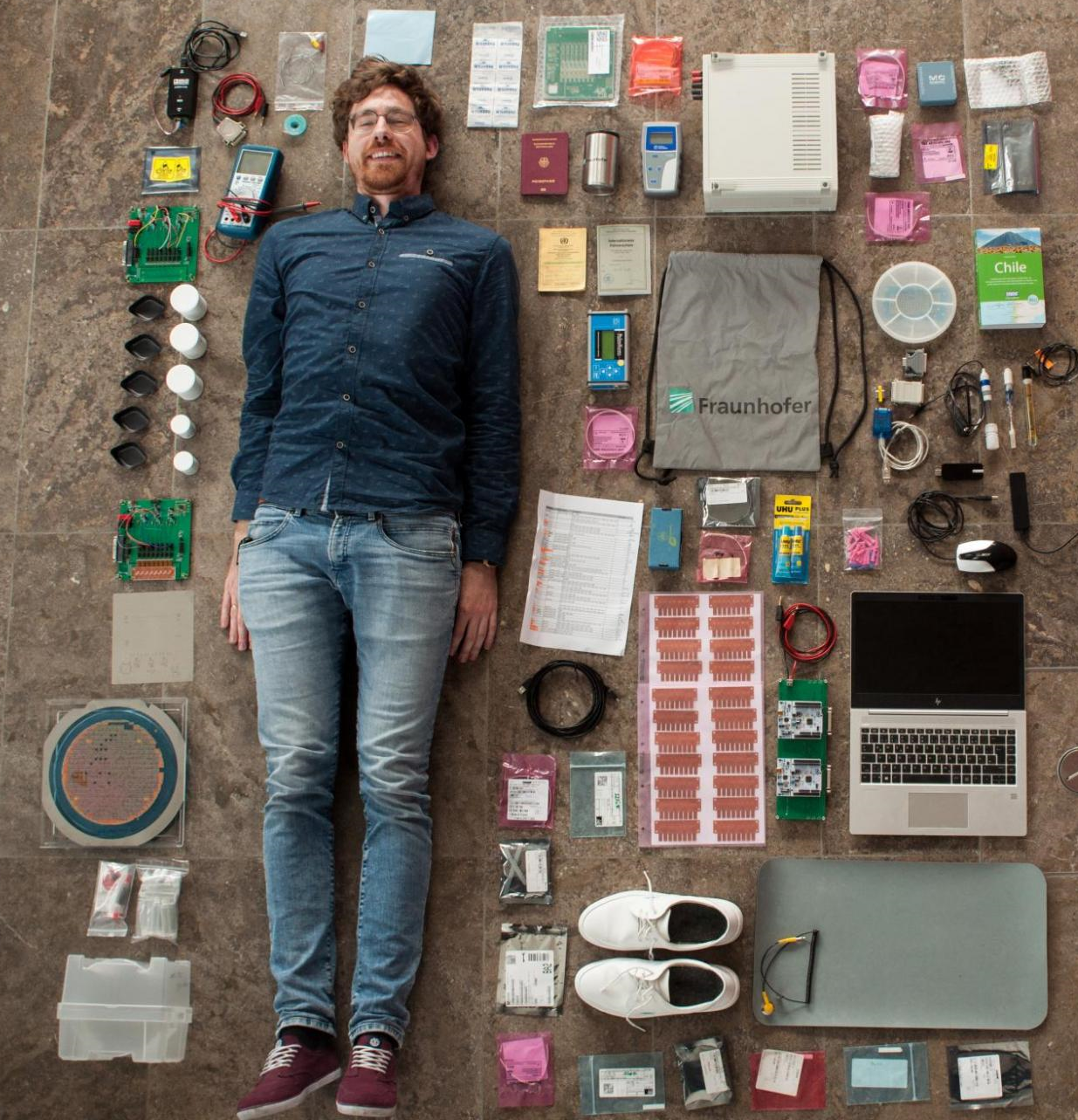From Munich to Santiago de Chile
Matthias Steinmaßl from Fraunhofer EMFT has moved his workplace from Munich to the Chilean capital Santiago. In this interview, he reports on the mobility program CONNECT People and his time in the South American country.
You traveled to Chile with Fraunhofer’s internal mobility program CONNECT People. What’s the program like?
Imagine a doctoral student sitting in a laboratory on the outskirts of Santiago with a view of the Andes. After working on experiments with his team in the morning, he tries to run errands in the afternoon in the teeming city in order to get ahead with his experiments the next day. On the weekends, he is faced with the difficult decision of whether to reach for his hiking boots or (the dissertation needs to be finished at some point, after all) his laptop bag.
What opportunities does CONNECT People offer its participants?
CONNECT People creates opportunities for employees – whether they come from the technical, scientific, or administrative fields – to spend time abroad. The program aims to strengthen cooperation and synergies with Fraunhofer branches abroad. The stay abroad is organized as a business trip. There are also associated measures for personnel development.
What project are you working on locally?
Together with Fraunhofer IME in Aachen, we are researching a device for detecting virus-induced plant diseases for field use. In my luggage there were prototypes of biosensors (fully cleared by customs), which will be used in this device. At the Centro de Biotecnología de Sistemas – my current workplace – we are using these sensors for the first time to electronically evaluate the detection reactions. It is an exciting interdisciplinary project.
What intercultural differences can you identify in the work processes?
We are very similar in many things. When we discuss, we talk about basic principles, we speak plain language, and we structure our plans down to the last detail. What happens to these plans then is something we deal with in very different ways. I think I’ll learn flexibility here. And the joy of work too, which is something that thrives on the relationships one cultivates at work. I think by always being strictly fixated on tasks I fulfill the classic German stereotype.
What challenges did you face in the preparation and planning?
How do I get everything settled by the departure date? I think my colleague in charge of dealing with customs hopes that this will be my last trip abroad.
In your blog you write about the rapid growth of emission-free energy in Chile. What lessons can countries with similar objectives draw from this?
In many regions of Chile, the energy supply must be regulated in a decentralized way with small power plants. Grid stability or base load coverage is no reason to preclude emission-free energy concepts there. Moreover, the country is not afraid to take responsibility for the necessary development of extremely weather-resistant photovoltaic or wind power plants.
In all honesty, what do you miss about home?
My wife and son. They are coming to visit me soon and I can hardly wait to see them again.
What happens after your stay?
First we will take a few days’ vacation in Chile as a family, and then the most exciting project phase will begin. We have successfully completed the prueba de principio – the proof of principle – and are pouring the findings into the solid form of a demonstrator for field use.
Mr. Steinmaßl, thank you for this interview.
Matthias Steinmaßl was talking to Judith Siegel.
About Matthias Steinmaßl:
Matthias Steinmaßl, born in 1991 in Freilassing. Married, one child. Studied physics at the Technical University of Munich. Research associate at the Fraunhofer Research Institution for Microsystems and Solid State Technologies (EMFT) in Munich for the past two years; in the working group for chemical sensors of the department of silicon technologies. He is currently doing his doctorate at Bundeswehr University Munich on the subject of “DNA detection with biosensors” and hopes to achieve groundbreaking results at the Fraunhofer Research Center in Santiago de Chile together with his colleagues Derie Fuentes and Melissa Soto.
CONNECT People:
The aim is the internationalization of the Fraunhofer institutes through staff stays abroad and international networking. Stays for employees from all areas (technology, administration, science) are supported for 2 to 5.5 months. Fraunhofer employees can find all information on how to apply for CONNECT People on the intranet, as well as the Chilean blog.
Last modified:
